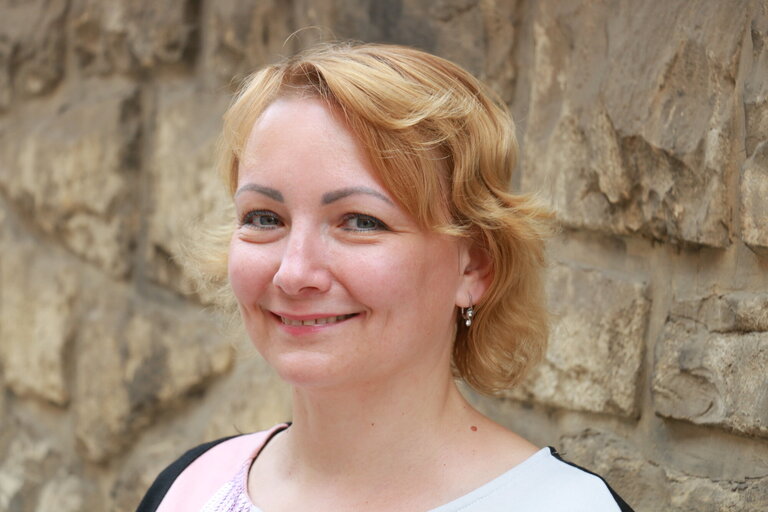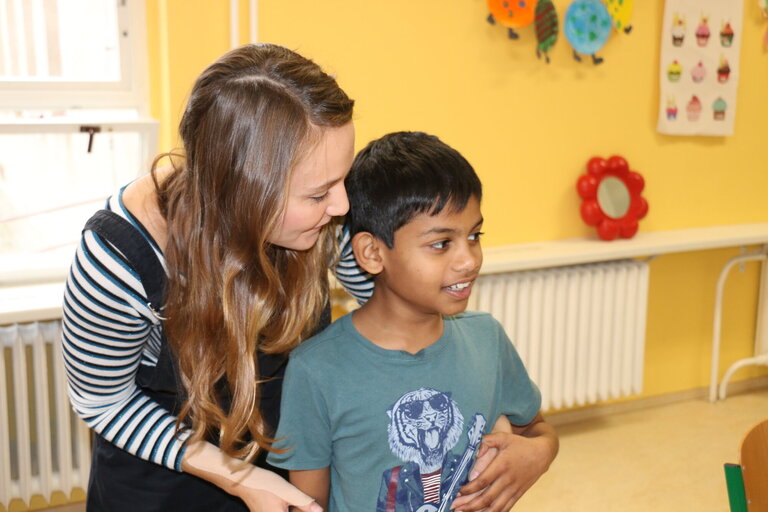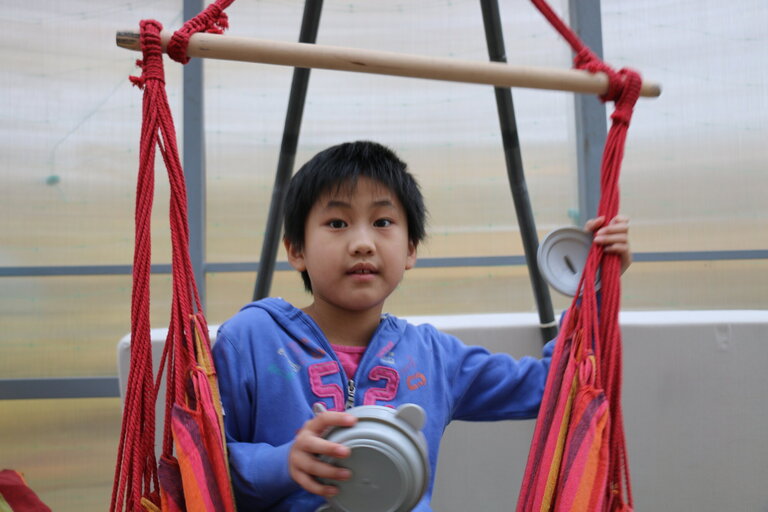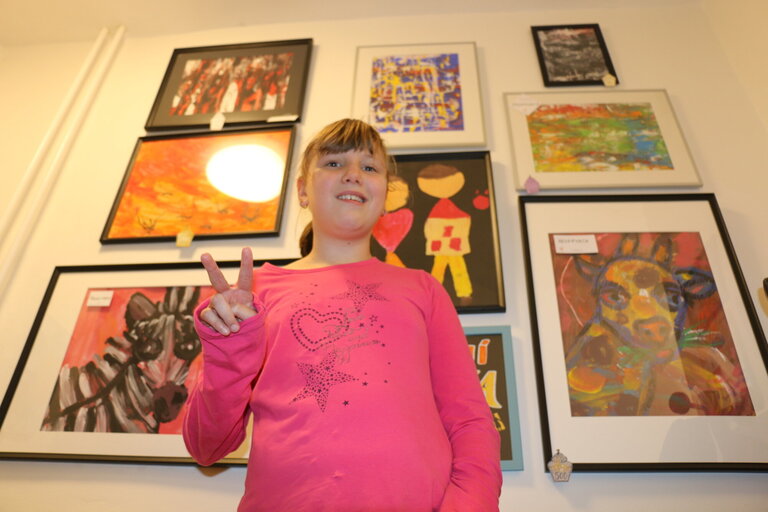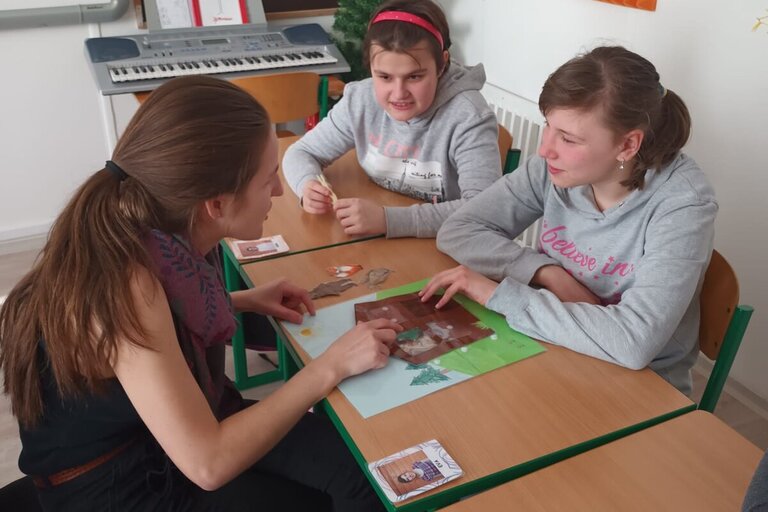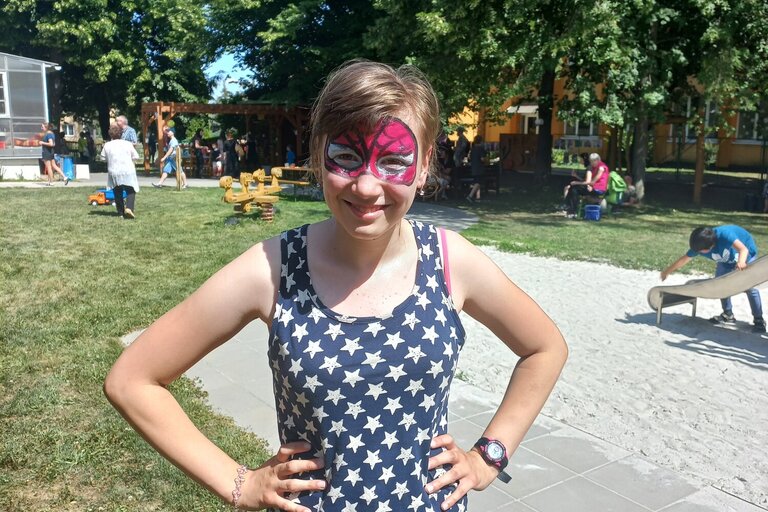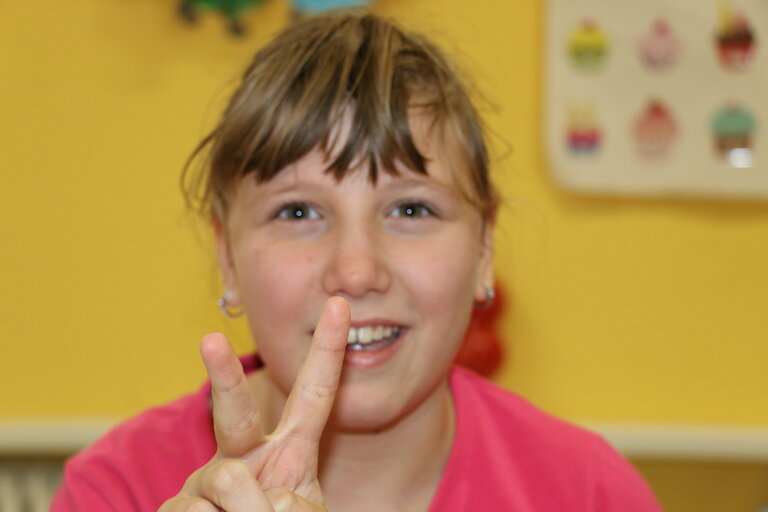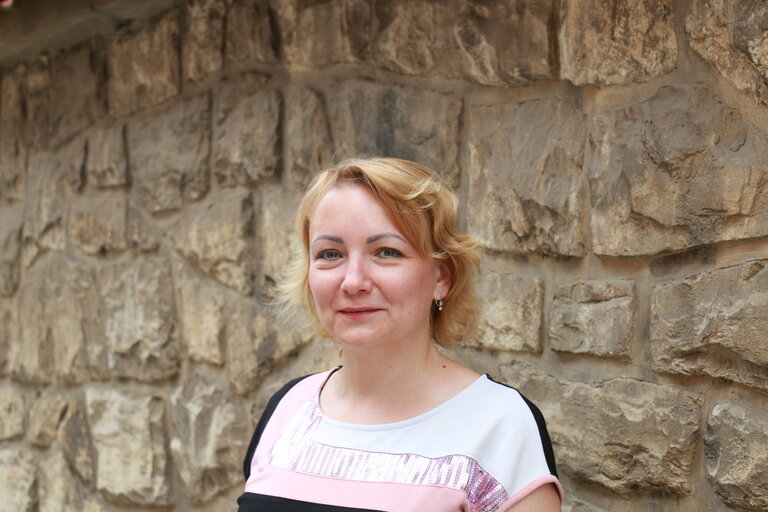I vouch for our school with my name
Why parents like sending their children to Diaconia’s schools?
Diaconia’s V Zápolí school in Prague has been educating around 48 pupils with mental disabilities for over 28 years now. The school is currently undergoing a major renovation. The capacity is to increase by almost a half, to eighty students. The school is reacting to the growing demand of parents who want to send their children to Diaconia’s schools. The following interview with Dana Šalamounová, mother of 14-year-old Eva, who has been attending the V Zápolí school for several years now, should provide some answers to why Diaconia’s schools are so highly sought-after.
What would your day look like if the V Zápolí school did not exist?
I’d get up and take care of my daughter. I certainly couldn’t send her to a regular school. I doubt she’d manage, even with the help of an aide. So we would spend the morning studying, as elementary education is compulsory for everybody. After lunch, we’d spend our time in some meaningful way. I can’t see any way I would be able to go to work. Today, I would probably be able to work part time from home, but until my daughter was six or seven, having an actual job would have been out of the question for me.
How would you describe your daughter’s disability?
Eva has moderate mental retardation and autism, as well as an expressive speech disorder. Even now, at 14, she can barely string a sentence together. Her pronunciation is far from perfect and she is hard to understand. Overall, however, it is a minor form of disability. Fortunately, the older she gets, the better she gets. Today I can go shopping and leave her home alone for a while. This was impossible before, especially between ages four and six, Evička used to have big tantrums, often several times a day.
What were the triggers?
The tantrums were triggered by specific situations. For example, she hated the washing machine, the microwave, the kettle. Whenever she would see these appliances running, she’d start screaming, stomping. She also hated public transportations vehicles. She could only tolerate the car. Whenever I travelled with her by bus, she would permanently scream. It was very similar with trains or trams. She’s used to it now, she’s not afraid anymore. However, I can never really predict what will happen, especially with new experiences. When you’re going on a trip and you want to do the normal things you do with a family, you can never be sure how your child will react.
How did the tantrums go away?
I think for the largest part, she is simply growing and her brain is developing. Habit also played an important role. I tried to show my daughter that she did not have to worry about the things that scared her. I did not tell her I would turn off the washing machine. On the contrary: the laundry needed washing and she was free to go to another room. I also tried to ensure that Eva’s upbringing would not be unfair to my older son. I did with her as I had done with him. Keeping in mind, of course, that my daughter had her limits. The V Zápolí school also helped, of course. She’s making a lot of progress there.
How did you get in touch with the V Zápolí school?
That was a bit of a coincidence. Since my daughter was physically fine, we weren’t aware of disability for quite some time. We could see that she was living in a world of her own, not talking, but even our doctor believed that it would get better as she grew and gave us the green light for Evička to start attending a normal kindergarten. It was only there that the problems became fully apparent. Eva was not able to follow the common programme. The children would sing together and she would go off to flush the toilet. She wasn’t capable of functioning in the group. Then the teachers informed me that this was not going to work, so I spent the last year of my parental leave looking for a different kindergarten. They promised to let her attend in one place, I waited half a year, but then the director changed her mind. So I started making more phone calls. In many places, they told me that Eva belonged with them, but that the admissions process was over. I called the director at Diaconia, Ms Pekařová, by chance. She told me how things worked at their institution, invited us to visit, and in the end, she told us we could start almost immediately. I didn’t know at the time that Diaconia’s kindergarten is followed by a special needs school, so our daughter will be able to continue smoothly, which is wonderful.
In what ways did school help Eva?
For one thing, it helped her with her nutrition. At home, she would only drink from her bottle and get very angry when I tried to teach her how to hold a spoon. At school, she learned very quickly and started drinking from a glass. Her speech has also improved a great deal. And when others don’t understand her, she can handle it. For example, she wanted to buy a cookie. When I didn’t understand, she borrowed my smart phone and showed me a picture on the internet. She’s also learned to write in block letters, count to 100, and draw. At school, it turned out she has a very good ear for music. All she has to do is hear a melody and she can play it on the keyboard. She plays together with her teacher who accompanies her on the guitar. She has also learned to clean up after herself.
You would not have been able to teach her that without school?
Of course, I also guided her to do these things at home, but sometimes the authority of a teacher is simply more effective than that of a parent. Her peers are another important factor, she learns a lot through imitation. When she sees that someone her age has certain skills, it really motivates her. That is why I also welcome the fact that the V Zápolí school offers a boarding house for children, which will expand further after the renovation. Apart from the obvious advantage, that children don’t have to commute from far, they also develop their skills at the boarding house. They learn to be independent: to make or change their bed, to make themselves dinner, to shower, brush teeth, comb their hair. Children make better progress that way than when they are only attending school. That, of course, requires the presence of good governesses, but at our school, I vouch for that with my name.
Adam Šůra
